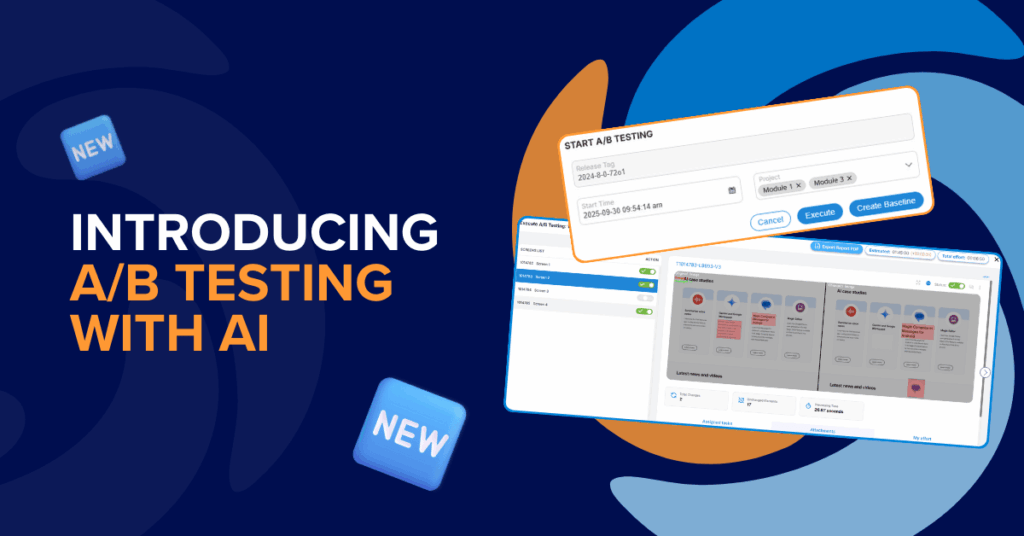How Automation and AI Are Transforming Software Testing
Blog
·
22/08/2025
·
Manual testing can help in catching software defects, but it’s slow, costly, and can’t keep up with fast releases.
In this article, we dive into the common challenges of manual software testing and the key benefits of automated testing. We also discuss how to automate software testing effectively, how to integrate AI in testing, and how testing tools for software companies, like Elix QA, streamline QA processes with smart automation and AI-assisted test script and test case generation.
Key Challenges of Manual Testing
Manual software testing has long been a cornerstone of quality assurance, but it comes with significant challenges that can slow down development and increase costs.
Understanding these obstacles helps explain why automated testing is becoming essential for modern software companies.
1. Time-consuming & repetitive
❌Running tests manually for every build and every feature takes hours, even days, especially for large IT projects.
2. Human error & inconsistency
❌Manual testing relies on human attention, which can lead to missed defects or inconsistent results.
3. Limited coverage
❌Complex scenarios, edge cases, and regression tests are difficult to execute exhaustively without automation.
4. Scalability issues
❌As applications grow, manually testing all features becomes increasingly impractical, delaying releases.
5. Costly over time
❌While manual testing may seem cheaper initially, repeated effort and delays ultimately increase project costs.
➡️ Transitioning to automated testing addresses these challenges, speeding up releases, improving accuracy, and enabling software teams to focus on innovation instead of repetitive tasks.
How to automate your software tests
in 6 steps?
Automating your software tests is no longer a luxury, it’s a necessity to accelerate delivery, improve quality, and reduce human error.
But where do you start?
Below is a structured 6-step approach we propose to building a robust test automation strategy :
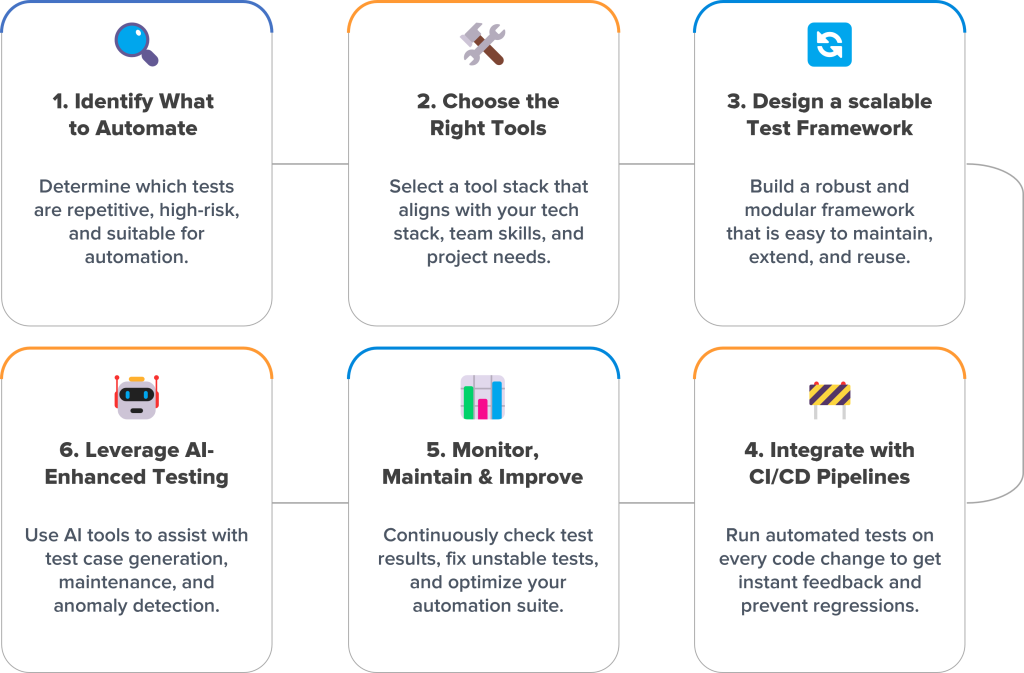
1. Identify what to automate
Not all tests should be automated. Focus on :
- Repetitive test cases that are run frequently.
- High-risk areas where defects could cause significant impact.
- Time-consuming manual tests that slow down your release cycle.
2. Choose the right testing tools
Selecting the right automation tools is critical. Consider the following criteria :
- Ease of use and test creation, some tools have an incredibly steep learning curve.
- Compatibility with your tech stack (web, mobile, API, etc.).
- Ease of integration with your CI/CD pipeline.
- Maintenance and scalability to avoid brittle tests over time.
Popular tools include Selenium, Cypress, Appium, and Postman for API testing. For teams using Elix, built-in modules can accelerate this process with minimal setup.
3. Design a scalable test framework
A strong framework ensures consistency, reusability, and easier maintenance :
- Keyword-driven or data-driven approaches to separate test logic from test data.
- Modular test scripts for reusability across multiple features.
- Version control integration to manage changes in your test suite.
4. Integrate with CI/CD Pipelines
Automation reaches its full potential when integrated into continuous integration and deployment workflows :
- Automatically run tests on code commits or pull requests.
- Catch bugs early before they reach production.
- Generate detailed reports for developers and QA teams to act on quickly.
5. Monitor, Maintain, and Improve
Test automation is not “set and forget.” To maximize ROI :
- Regularly update scripts to match application changes.
- Monitor test coverage and execution times.
- Analyze results to identify flaky tests or bottlenecks.
6. Leverage AI-Enhanced Testing
Modern testing tools, like Elix, incorporate AI to :
- Suggest test cases based on code changes.
- Detect anomalies in UI and backend behavior automatically.
- Predict high-risk areas needing additional focus.
➡️By combining strategic planning, the right tools, and AI-powered automation, your testing process becomes faster, more reliable, and more aligned with agile delivery.
Top 5 Benefits of Automated Testing
Automated testing uses scripts and tools to execute test cases, bringing multiple advantages :
✅Faster test execution: Automated tests run much faster than manual ones, enabling rapid feedback.
✅Improved accuracy: Automation eliminates human errors and ensures tests run consistently.
✅Better test coverage: Automation can run extensive test suites across different environments reliably.
✅Reusable test scripts: Once created, scripts can be reused across builds and projects.
✅Cost-effective long term: Although initial setup requires investment, automation saves time and money over multiple releases.
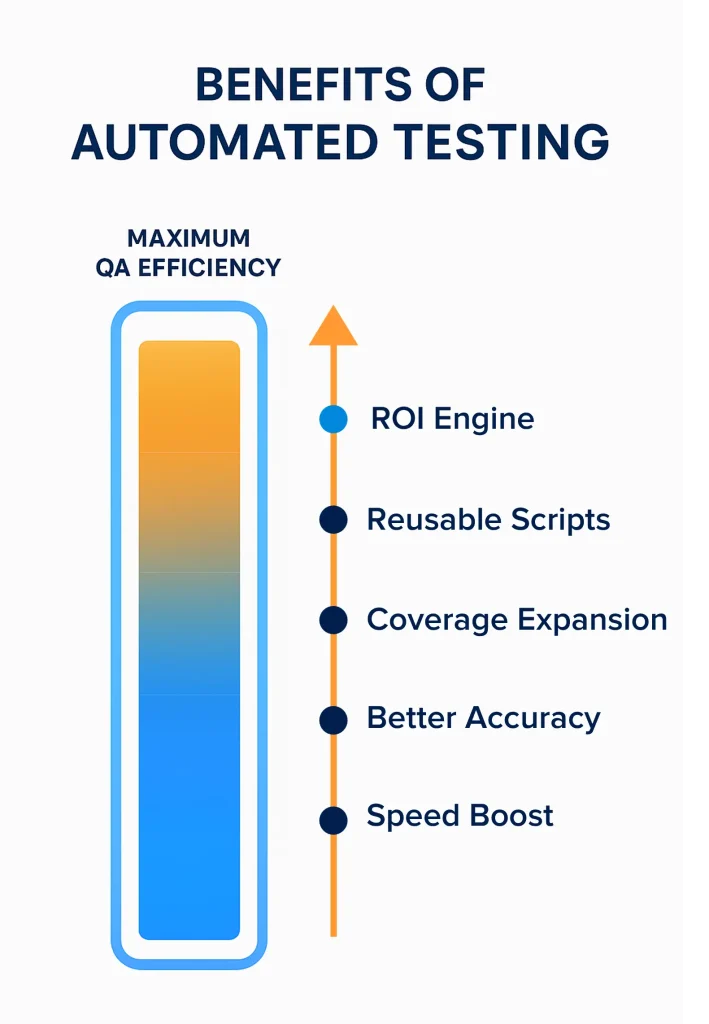
Elix QA : Smarter Testing Powered by AI
Transitioning from manual to automated testing can be challenging, but Elix QA makes the journey effortless. Designed as a complete Test Management and Automation hub, Elix enables QA teams to boost speed, accuracy, and coverage without compromising on quality.
With Elix QA, you can:
Centralize Test Management
➡️ Organize test cases, plans, and suites in one intuitive platform.
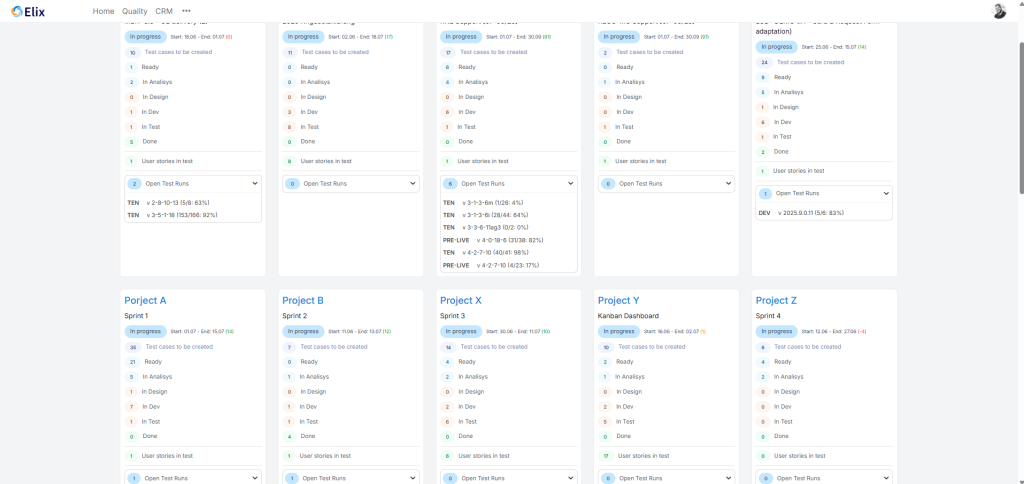
Generate Test Scripts with AI
➡️Automatically create robust test scripts in seconds, reducing manual scripting time.
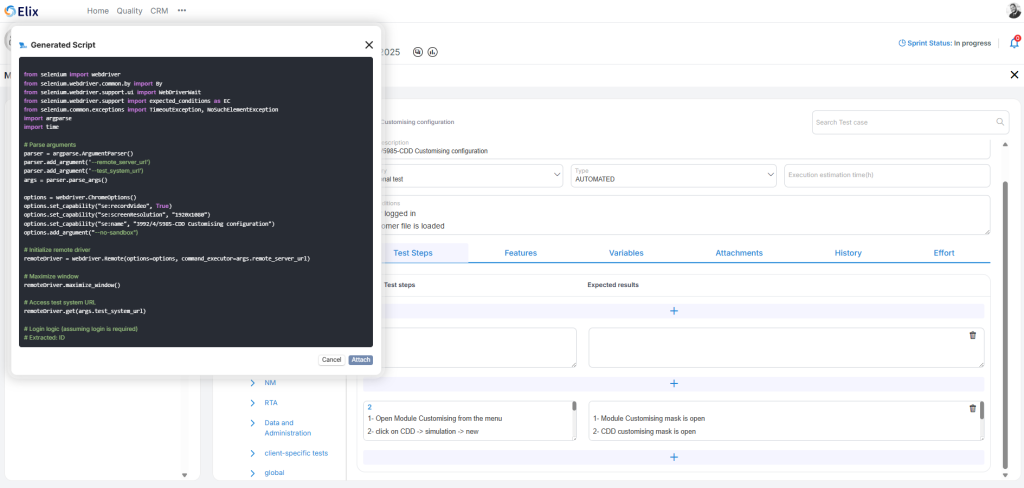
Build Test Libraries Faster
➡️Use AI-assisted test case creation to expand coverage and ensure accuracy.
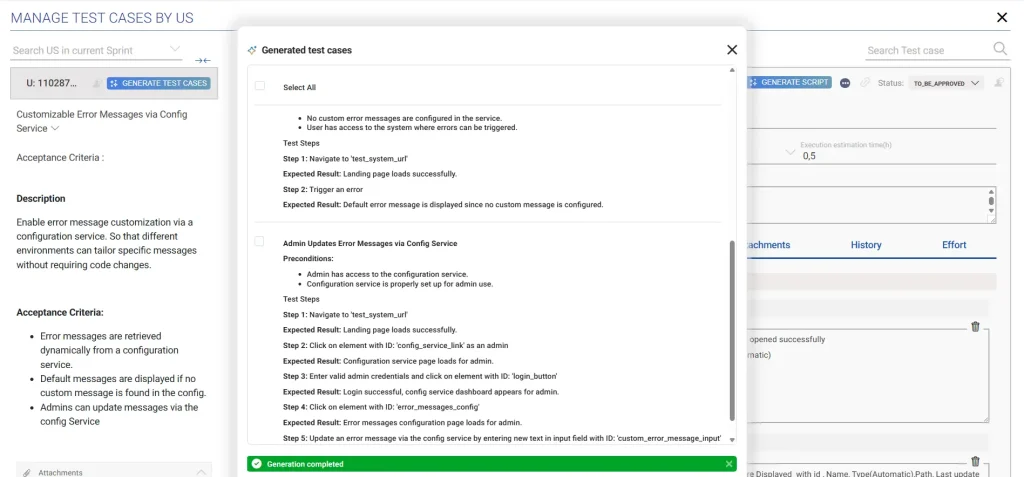
Execute & Report Seamlessly
➡️Run automated tests with ease and get clear, actionable reports to track regressions and quality metrics.
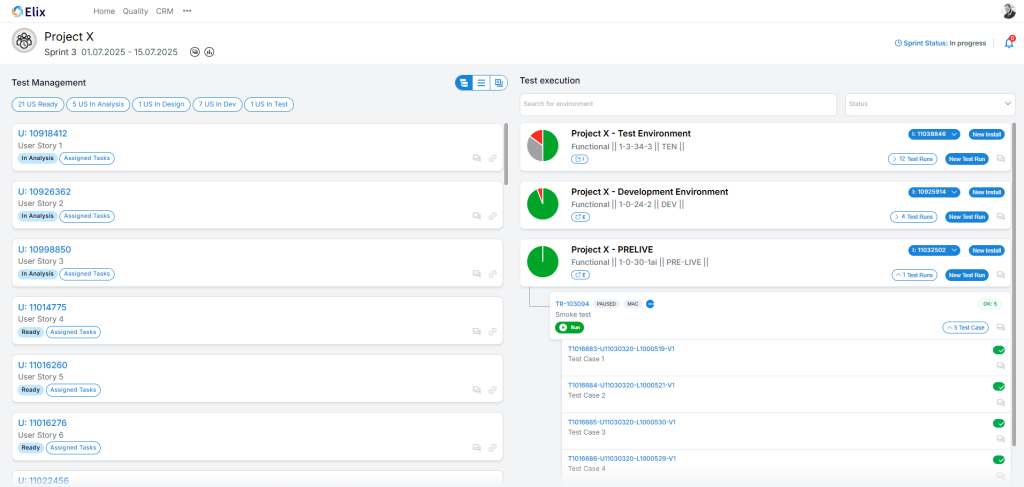
Integrate with CI/CD
➡️Fit Elix QA into your existing DevOps pipeline for true continuous testing.
Conclusion
Moving from manual to automated testing is essential to overcome time, cost, and quality challenges in software development and digital transformation projects.
Artificial intelligence is not just enhancing test automation, it’s redefining it. Elix QA already supports :
- AI-generated test scripts to reduce manual coding and increase coverage.
- AI-assisted test case creation for faster, more comprehensive test libraries.
But that’s just the beginning. The roadmap for Elix QA includes:
- Smart defect prediction to identify potential problem areas before they occur.
- Automated execution analysis to detect anomalies, flaky tests, or performance degradation without human intervention.
With Elix QA’s intelligent automation and AI-powered features, teams can accelerate testing, improve accuracy, and deliver better software faster.
Content
Elix is launching a major innovation : AI-Powered A/B Testing for Visual Regression Analysis. This new feature empowers teams to validate UI changes with unprecedented accuracy, automation, and clarity, helping ensure every release is visually stable and user-ready.
Managing fundraising projects with scattered tools can quickly become a headache. Between tracking dossiers, coordinating teams, managing documentation, and ensuring communication traceability, financial institutions face a growing need for centralization, agility, and automation.
In a fast-paced digital landscape, African tech SMEs face a difficult equation: deliver faster, with fewer resources, without compromising on quality. That’s where software testing becomes a strategic asset. It not only helps prevent critical bugs, but also accelerates delivery, reduces long-term costs, and ensures a seamless customer experience.
Interested to know how Elix QA can transform your testing process?
